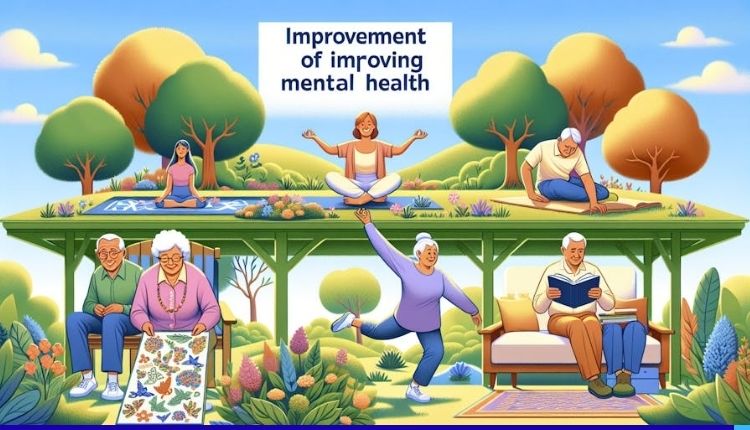Have you ever wondered why some older adults seem to stay happy and sharp while others struggle with loneliness or stress?
Mental wellness is just as important in later years as physical health, yet it is often overlooked. As we age, life changes can affect mood, memory, and confidence.
This article will explore practical strategies to help older adults feel more connected, engaged, and at peace. Because a healthy mind can make every stage of life richer and more meaningful.
Encourage Regular Physical Activity
Regular movement keeps the body strong and the mind sharp. Light activities like walking or stretching improve blood flow and mood. Even a short daily exercise can boost energy and reduce feelings of sadness.
Exercise can also help with balance and coordination. This lowers the risk of falls and injuries in older adults. Over time, physical activity supports better sleep and overall mental clarity.
Promote Social Interaction
Staying connected with others helps maintain emotional health. Talking with friends or joining a group can lift the spirit. Social contact also provides a sense of belonging and purpose.
For many elderly people, loneliness can lead to depression. Regular meetups, calls, or community events can ease this. Shared activities can build new friendships and strengthen old ones.
Support a Balanced Diet
A healthy diet fuels both the body and brain. Meals rich in vegetables, fruits, and whole grains can improve focus and mood. Drinking enough water also keeps the mind alert.
Limiting processed foods and sugar can reduce mood swings. Nutrient-rich meals give steady energy throughout the day. Good nutrition supports long-term brain health and emotional stability.
Maintain a Routine
A steady routine can bring comfort and predictability. Having set times for meals, rest, and activities lowers daily stress. It also helps keep sleep patterns consistent.
Routine creates a sense of order and stability. This can be especially calming during periods of change. Over time, it supports mental wellness by reducing feelings of uncertainty.
Stimulate the Mind
Mental exercises keep the brain active and healthy. Reading, puzzles, or learning new skills positively challenge the mind. These activities can also be enjoyable and rewarding.
Keeping the mind engaged can slow memory loss. Creative hobbies like painting or music bring both mental and emotional benefits. Even short daily brain activities can make a lasting impact.
Encourage Emotional Expression
Talking about feelings helps release stress. A safe space to share emotions can prevent them from building up. Listening with empathy can ease feelings of isolation.
Writing in a journal can also help process emotions. Expressing joy, sadness, or worry keeps mental health in balance. Open communication builds trust and understanding.
Seniors often benefit greatly when they feel safe to express their emotions, which is especially important because the most common mental illness in seniors can go unrecognized when emotional distress is not shared.
Bright Minds at Every Age
Caring for mental wellness in the elderly is more than a health goal. It is a way to honor life’s later chapters with joy, purpose, and dignity. A steady mind can make each day feel more vibrant, no matter the challenges age may bring.
When we give time and attention to mental health, we protect not just the mind but also the heart. Every effort made toward mental wellness is an investment in a happier and more fulfilling life.
We hope this article was helpful to you. If you enjoyed it, be sure to check out our blog for more valuable information and resources.






